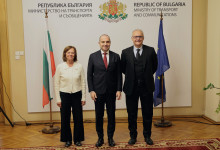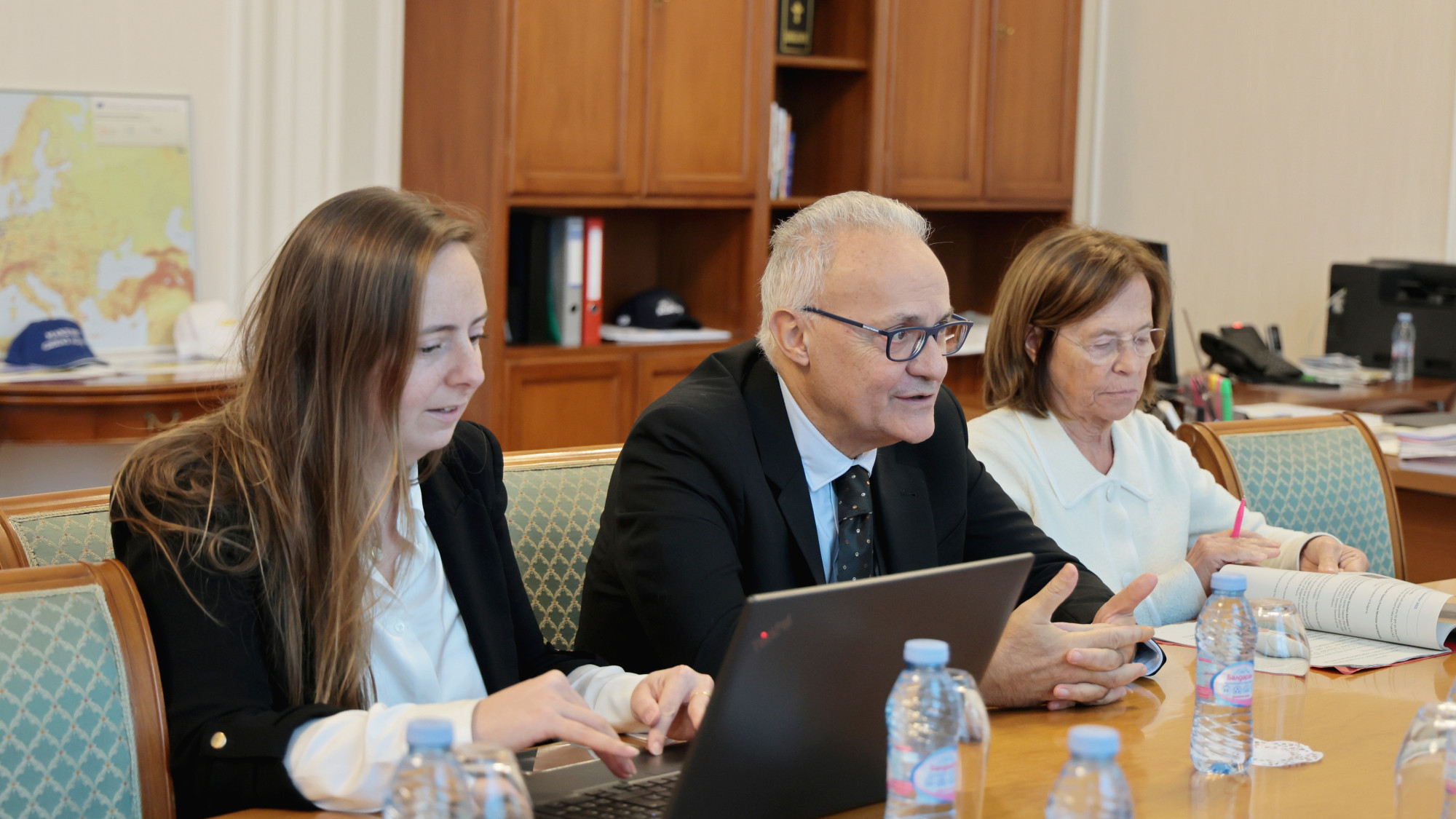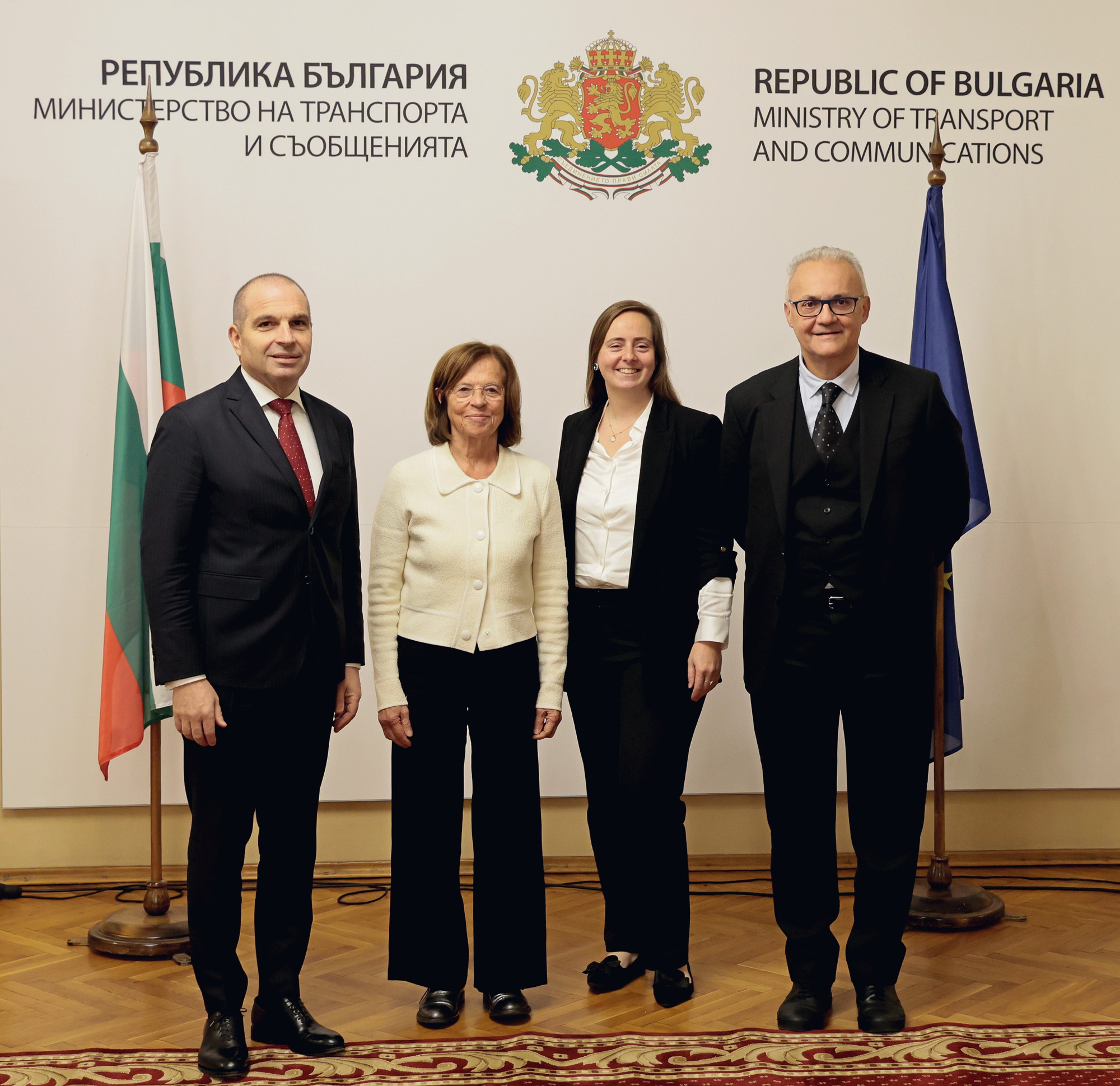The construction of additional bridges over the Danube is not merely a bilateral issue between Bulgaria and Romania – it is a strategic priority for the prosperity of the entire European Union and for our collective security within NATO. This was emphasised by Deputy Prime Minister and Minister of Transport and Communications Grozdan Karadjov during a meeting with Margarita Marques, Coordinator of the Rhine – Danube Transport Corridor, and Mario Mauro, Coordinator of the Baltic Sea – Black Sea – Aegean Sea Transport Corridor. The two representatives of the European Commission visited Bulgaria in connection with the finalisation of the Memorandum of Understanding between Bulgaria, Greece and Romania, which is expected to be signed by the end of the year.
“The accelerated construction of the third bridge over the Danube, as well as agreements for two more – between Silistra and Călărași, and between Nikopol and Turnu Măgurele – are key Bulgarian priorities,” Minister Karadjov stated. He stressed that Bulgaria has significantly expedited the procedures under the Fast Danube 2 project and carries out annual dredging of the river to ensure its year-round navigability. “I am confident that we will receive the strongest support from the European Commission. These projects go beyond national interests – they are of importance to the entire Union,” he added.
The Deputy Prime Minister emphasised that the construction of additional bridges in one of Europe’s least developed regions would provide an economic boost for the entire area. “Europe needs greater connectivity along the Danube. Every new bridge is an investment not only in infrastructure, but in the future of our nations,” the Minister stated. He underlined that the new facilities will stimulate the development of accompanying infrastructure – roads, railway links and logistics centres – which will facilitate the movement of goods and people, create new jobs and encourage investment in the border regions.
For her part, Margarita Marques noted that the new bridges could rely not only on financing from the Connecting Europe Facility (CEF), but also on substantial opportunities under the Cohesion Fund, which should be actively utilised. She pointed out that the regions on both sides of the Danube – in Bulgaria and in Romania – “remain among the least developed in the European Union, and new bridges would accelerate their economic growth and help overcome long-standing disparities”.
Mario Mauro, Coordinator of the Baltic–Black–Aegean Sea Corridor, stressed that Bulgaria is not the periphery of the European Union, but at its very heart – a position that offers numerous opportunities. He stated that the signing of the trilateral memorandum would be a success not only for the region, but for the Union as a whole, adding that it would be “only the beginning of much joint work ahead“.





